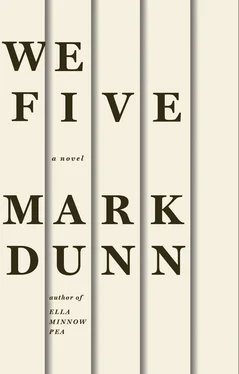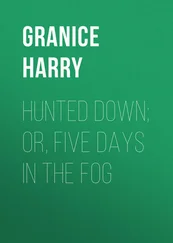As if on cue, there came the sound of an explosion quite close by. One of the women in the shelter emitted an abortive scream, which elicited a whisper-chorus of “there there”s from the concerned women who sat round her.
Another woman, who sat next to Ruth, turned to her and said severely, “I wish you wouldn’t talk that way with the children here.” She pointed to the children of reference. “It frightens them so.”
Ruth was about to observe that it certainly was a topsy-turvy world in which talking about bombs should be found more frightening than the actual sound of their nearby detonation, when a tweedy old man sitting within earshot said, “If you ask me, that boy and girl should have been sent away from London along with half the other children of the city. This is no place for a child, with them Nazi bombs raining down on us every bloody night.”
Now it was the children’s mother’s turn to speak. She did so as she embraced her little ones, one on either side: “From what I’ve heard, London is only slightly more dangerous than all them other places the little ones been shipped off to. So why don’t you just sod off?”
It was time, once again, for the shelter marshal to intercede: “Ladies and gentlemen, there is a proper and respectful way to speak to one another in such close quarters as this, and I am not hearing it. Has anyone a mouth organ to play or a music hall song to sing — mind, one appropriate for young ears?”
“Oh good God,” muttered Carrie. She kept her eyes squeezed tight and feigned sleep, lest any of her four sisters commit the unpardonable atrocity of informing the other sardines in this tight little underground tin that there was one among them who had a voice to put even Deanna Durbin to shame. Carrie conjured up a picture of Will and the way he had held her during “A Nightingale Sang in Berkeley Square,” taking care not to squeeze her too tightly. She liked that. It seemed such a contrast to the way the evening had ended for poor Maggie. Carrie peeped at her friend. In the dim lantern light she could almost swear Maggie was crying, but she wasn’t close enough to ask her outright, nor would Maggie much fancy it if she did.
Carrie thought of how similarly the two of them had been brought up — each enduring early years with a father who wasn’t fit to be a father at all. Although Carrie’s dad was still out there, perhaps even going about the business of redeeming his putrid character by offering his showman talents to the Entertainments National Service Association (ENSA, to most), and Maggie’s father was gone entirely from this earth, both of the young women had been required by circumstance to reside in more recent years in homes in which the bond between mother and daughter was, by necessity, crucially important to the survival of what was left of their attritive families.
But Carrie could not help thinking there was something even more special about how much she and her mother loved one another. They got on very well together (everyone said so), and was this fact not best demonstrated by Sylvia’s willingness to gently nudge her daughter fully fledged from the nest? Carrie could not contain the frisson of bliss that ran through her in this paradoxically unhappy and revolting place. Will Holborne’s edges were deckled, his personality gruff, his intellect adequate but far from remarkable; yet there was something that commended him to her heart.
And yet.
First loves are anomalies, they always say. They cannot be completely trusted. Carrie knew this. Each of her sisters would be quick to tell her this. But the feeling of joy that came from knowing — or, in the very least, guessing —how Will felt about her was hard to ignore.
Carrie Hale couldn’t wait to get home to tell her mother all she was able about the night at the Hammersmith Palais and about the man who made her sing — both from her lips and from her heart. She asked the time and was told it was nearing midnight. There had been one raid already, and then an hour later the All Clear. Now another raid was underway. She could hear it and feel it. She could see the fear imprinted upon the faces of her fellow Londoners, who never got used to it, never stopped wondering if this particular night would be their last. Perhaps if they were lucky, Carrie and her sisters wouldn’t have to spend the rest of the night in this terrible place, like rats in a sewer. In the meantime, she would hum her way through this durance vile: “They know you have departed without me and we wonder why, the breeze and I.”
Was Will safe?
You see, she was already worrying about him. When, if there was worrying to be done (and most will tell you that worrying is never productive), it was her mother who should have occupied her deepest, most fretful thoughts.
For at that very moment, in Elmfield Road not far from Balham High Road, a bomb — not one that shatters and rends and pulverizes and deforms, but one that only burns — a diabolical incendiary bomb — fell with a seemingly innocent thud upon the roof of the Hale row house and tumbled down the steeply pitched roof, coming finally to rest upon a loosely tied stack of paper rubbish Mrs. Hale had been gathering for the next paper drive. Its sputtering sparks ignited the paper and then the grass beneath it and within moments the sideboards of the house whilst Carrie’s mother slept in the cupboard beneath the stairs, where she and Carrie would always go, having been told that staircases offered the best protection from falling bombs — at least the kind of bombs that destroy on detonative contact. And so the house began to burn as Sylvia slept (for she had just dozed off, having fought sleep for hours in hopes of being awake for Carrie’s return) and the family cat, awake and motivated by an instinct for survival, fled through the cat flap in the kitchen door.
It wasn’t until the house was nearly engulfed that a fireman fighting a blaze at the end of the lane spotted the curls of smoke coming from inside and rushed over to discover if there was anyone within. What happened to her mother Carrie would not learn for another four and one half hours: she was not dead, but she had been badly burnt in her attempt to escape the house upon waking to the acrid smell of smoke, and by only the most clinical definition could Carrie’s mother and best friend in the world be called alive.
The house and nearly everything inside — the musical instruments, the sheet music, the books — were lost.
There was even a biscuit sheet of slightly scorched muffins, freshly baked, waiting for Carrie on the top of the stove, now burnt to a point that even Sylvia Hale had never taken them.
Bellevenue, Mississippi, February 1997
It was two and a half days before Carrie was finally able to make it to the blackened shell which had been the house she shared with her mother. In the meantime Carrie’s next-door neighbors, the Prowses, had kept careful watch over what was left of the structure (in addition to giving a temporary home to the now homeless Frisky McWhiskers); Mira Prowse had even pulled a few things from the less-damaged rooms that she felt her friend Carrie might want to have — although everything she’d carried out was either singed or smoke- or water-damaged. Mira’s Samaritan salvage operation was not without incident. At one point she was confronted by Ms. Little-john, the neighborhood busybody, who demanded to know “what in God’s name” she was up to. Mira’s harried response: “What you should have been doing yourself, if you were any kind of thoughtful neighbor, you nasty old bitch!”
Since Sunday night when Carrie had been taken off the gaming floor and told by Ms. Colthurst that “oh honey, darlin’, something just awful’s happened and you need to go straight to the hospital,” Carrie had cried so much that she no longer even resembled herself. Molly insisted on keeping her friend’s eyes periodically Visined to get at least some of the redness and puffiness down. Molly had been right by Carrie’s side ever since it happened. Carrie’s other sisters had also remained in close orbit, but it was Molly who put everything in her life on hold to give around-the-clock attention to her devastated friend.
Читать дальше












